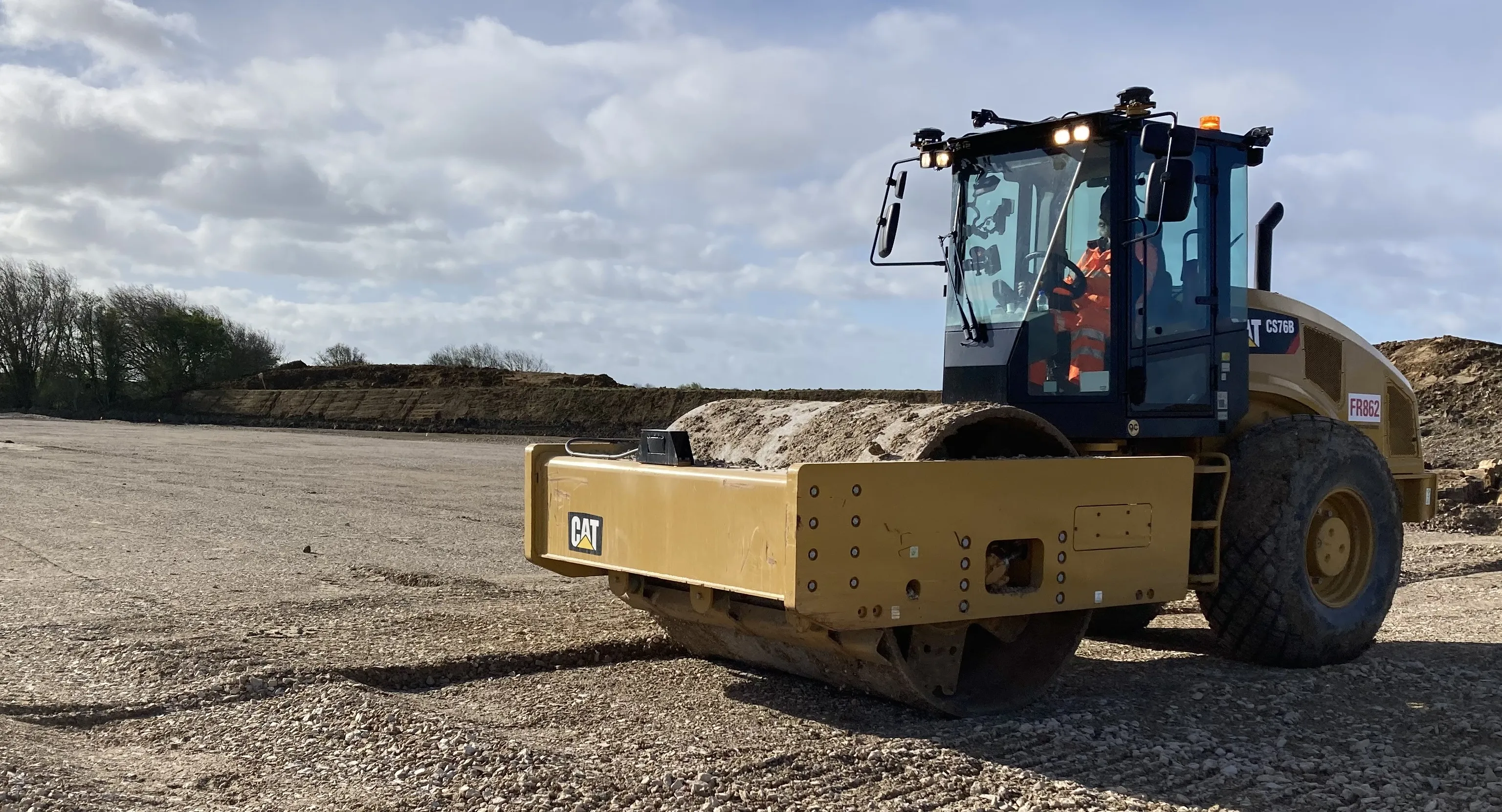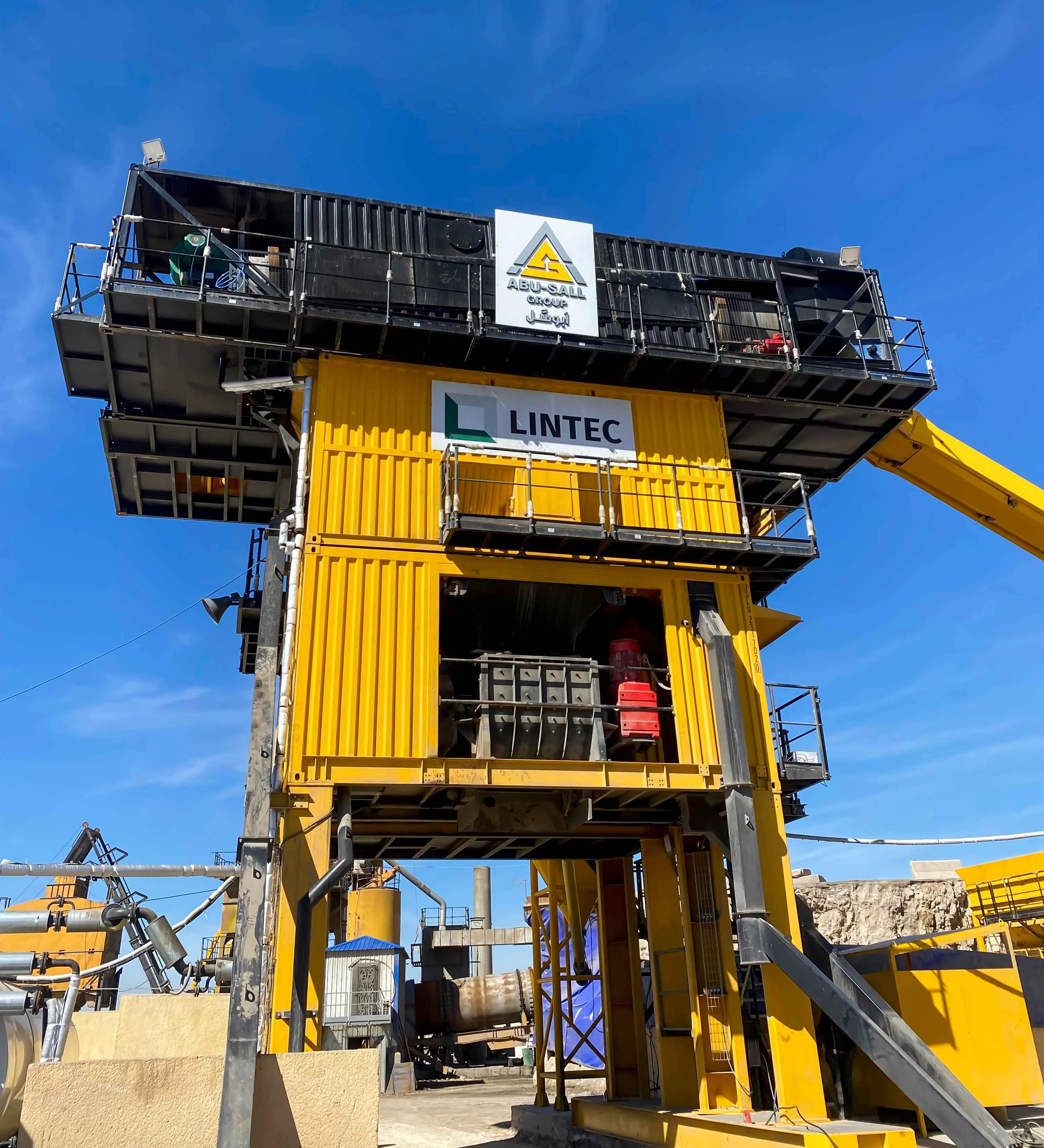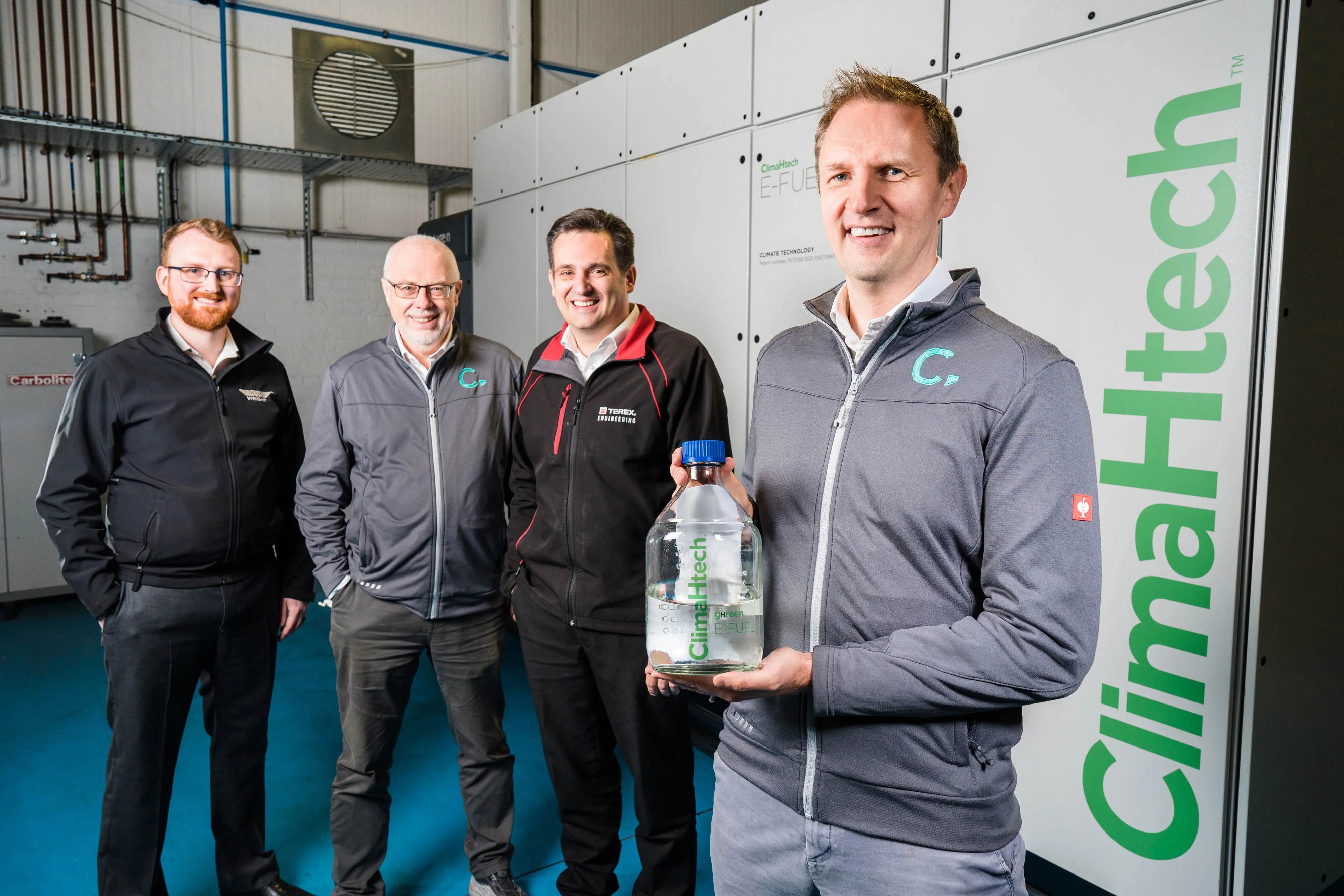
New technology has been trialled by National Highways in the UK that is intended to speed up road construction and improve safety. The sophisticated compaction technology is intended to ensure that equipment gets the job done first time, delivering durable foundations for road building.
As part of a commitment to developing and promoting Connected and Autonomous Plant, National Highways teamed up with partners Finning UK & Ireland and Galliford Try to trial the Intelligent Compaction system.
The technology was put to the test on a scheme being carried out by Galliford Try, upgrading a stretch of the A303 to dual carriageway status.
Compaction is one of the first activities to happen onsite so any issues can impact the whole construction programme and increase costs. Using 3D mapping and sophisticated sensors, the technology ensures that the right levels of compaction are achieved and the system will identify uneven areas that would otherwise cause settlement issues later on.
National Highways head of innovation, Claire Hamar, said: “A huge positive that we discovered in the Intelligent Compaction trial was the improved efficiency and environmental benefits - as work did not need to be repeated so, thanks to the reduced fuel use, we had reduced carbon. Not only is the work completed more quickly saving resources and taxpayers’ money but, most importantly, it improves safety and reduces risk.”
The machines used in the trial were fitted with Cat machine drive power technology and Cat compaction meter value. Using these features, the driver was able to set the target depth and compaction level required via a touchscreen in the cab. This enabled the operator to pre-set the drive functions so the roller was automated and operated within the required parameters. This ensured the task was completed safely and eliminated the need for personnel to be out on site to check compaction levels.
Jonathan Davies, industry manager, industrial, waste and paving at Finning UK & Ireland, said: “Technology increases performance and operational efficiency with the machine operating effectively with reduced fuel consumption. Cat soil compactors have two types of sensors that measure the ground stiffness as well as an accelerometer base system, which is common in the industry, and complemented by a proprietary rolling resistance system so it works particularly well in cohesive and clay like material which is common across the UK.
“Without the use of such technology, the only way to be sure of the compaction level across a site is through random testing, which can cause delays on site and safety issues.”
Jon de Souza, innovation and research lead at Galliford Try, said: We believe that connected and autonomous plant has the potential to transform construction over the coming years, improving safety and productivity while reducing carbon emissions.









